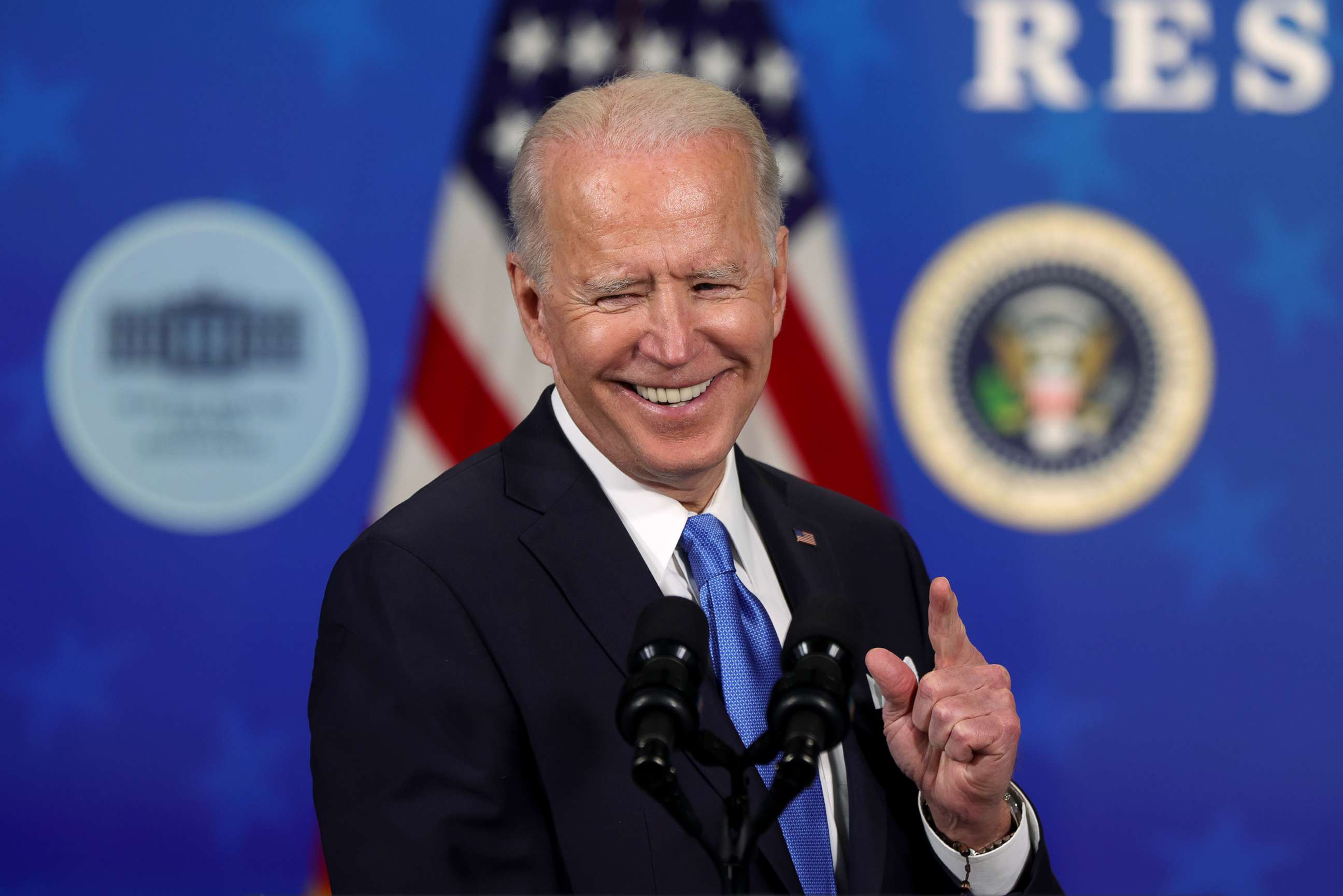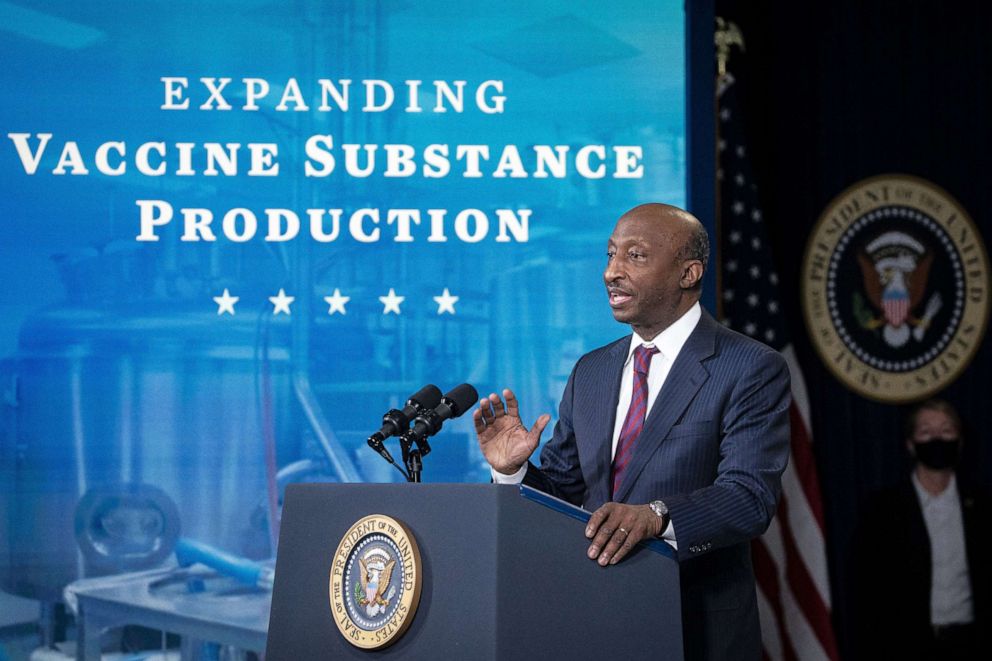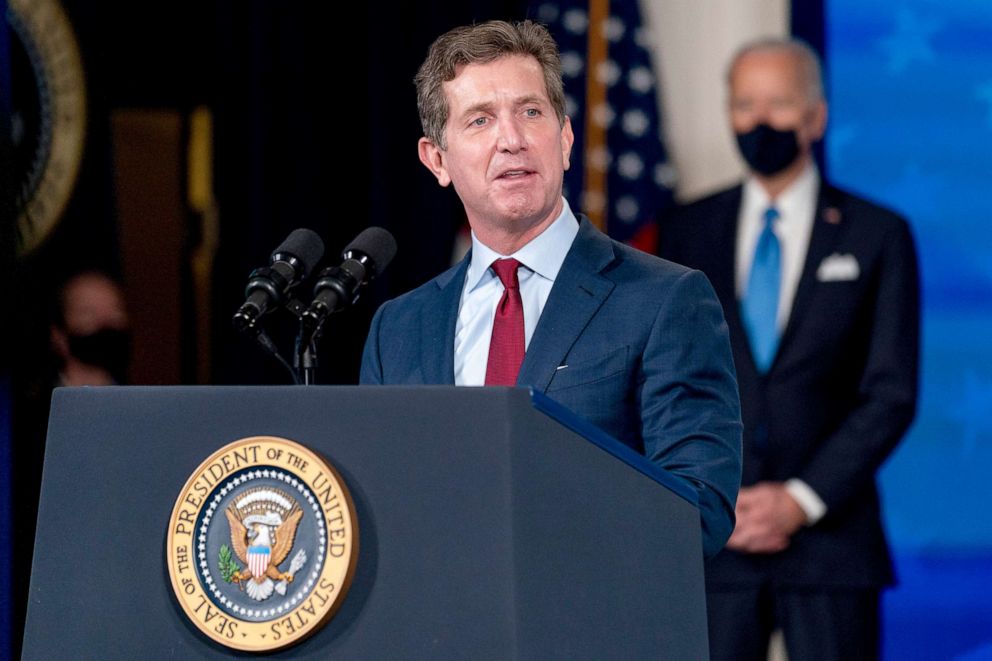Biden announces effort to procure 100 million additional Johnson & Johnson doses
The doses won't speed up the timeline to get Americans vaccinated.
President Joe Biden announced Wednesday a push to procure 100 million additional doses of the Johnson & Johnson vaccine to be delivered sometime in the latter half of 2021.
"I'm doing this because in this wartime efforts, we need maximum flexibility. There's always a chance that we’ll encounter unexpected challenges or we’ll -- there’ll be a new need for a vaccine effort -- a vaccination effort. A lot can happen. A lot can change, and we need to be prepared," Biden said Wednesday during an event with executives from Johnson & Johnson and Merck.
"There is light at the end of this dark tunnel of the past year. But we cannot let our guard down now or assume the victory is inevitable. Together, we're gonna get through this pandemic and usher in a healthier and more hopeful future," he added.

The White House has already said enough doses of the vaccine will be available to vaccinate every American adult, or about 260 million people, by the end of May.
The acquisition of 100 million additional doses of Johnson & Johnson vaccine, if finalized, will not speed up that timeline, but the new batch is intended to be kept as an insurance policy against various unknowns: the need -- and eventual authorization -- to vaccinate children, the need for booster shots, or the need for more doses to use in research on combatting emerging variants of the virus.

In a recent agreement brokered by the White House, the two companies, typically rivals, have teamed up to boost manufacturing capability and speed. Wednesday's meeting at the White House is meant to highlight that landmark partnership.
The additional 100 million doses of Johnson & Johnson would represent a doubling of the U.S. commitment to purchase that vaccine, to a total of 200 million doses.

The Johnson & Johnson vaccine requires only 1 dose to confer full vaccination against COVID-19. Johnson & Johnson also does not require specialized freezers or extremely low temperatures, making it a convenient option for longtime storage and distribution to rural communities.




